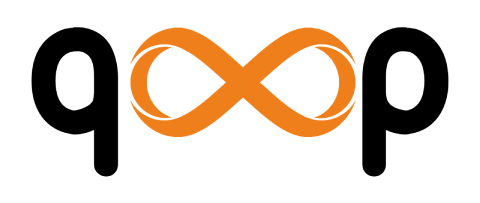A Big Part of Financial Freedom is Having Your Heart and Mind Free from Worry About the What-Ifs of Life – Suze Orman
Financial freedom is a term often associated with wealth, savings, and a comfortable lifestyle. Yet, Suze Orman, one of the most prominent financial advisors, reminds us that there’s more to financial independence than just numbers in a bank account. In her profound statement, “A big part of financial freedom is having your heart and mind free from worry about the what-ifs of life,” she captures the essence of true financial well-being: peace of mind.
What Does Financial Freedom Truly Mean?
When we think of financial freedom, the first things that come to mind are typically material security and a lack of financial constraints. However, financial freedom also carries a deeper, more personal dimension—it’s about eliminating the stress and anxiety that come from the unknowns in life. This emotional component is as essential as the practical side of money management.
For many, the “what-ifs” of life—unexpected expenses, emergencies, job loss, illness—are sources of constant worry. These events throw us off balance and make us question whether we can handle life’s twists and turns. Orman’s insight suggests that financial freedom is not only about preparing for these possibilities but also about releasing the constant mental burden they can bring. It’s about creating a safety net that allows us to live without fear of the unpredictable.
Building a Foundation of Security
Achieving financial freedom requires intentional planning. While you can’t predict every twist and turn life will throw at you, you can take proactive steps to protect yourself and your family from the financial fallout of life’s uncertainties.
Here are some key strategies to help build that safety net:
Emergency Fund Through Cooperative Contributions: This is a cornerstone of financial security. An emergency fund, typically 3-6 months’ worth of living expenses, ensures that you have a buffer to rely on if you face unexpected challenges, such as a medical emergency or job loss. The peace of mind that comes from knowing you have this cushion is invaluable especially when you can access double of your contributions if the funds are with a cooperative.
Insurance: Health, life, and disability insurance are often overlooked or undervalued, but they are critical in protecting against the financial burden of medical emergencies, accidents, or the loss of a breadwinner in the family. Proper coverage helps mitigate some of the biggest “what-ifs” that can derail financial plans.
Diversified Investments: Investing wisely is another way to prepare for the future and protect against economic downturns. A diversified portfolio spreads risk and increases the chances of long-term financial stability. Understanding your risk tolerance and goals helps you invest in a way that offers both growth and security.
Living Below Your Means: Financial freedom isn’t just about how much you earn, but also about how much you spend. Living within or below your means allows you to save, invest, and prepare for the future without relying on debt or overextending yourself. It also creates a mindset of financial discipline and sustainability.
Debt Management: Debt can be a major source of stress, especially if it becomes unmanageable. Prioritizing debt repayment, avoiding high-interest loans, and focusing on maintaining good credit health are essential steps in reducing financial anxiety. When you’re not weighed down by debt, you can focus on building wealth and security instead.
The Psychological Aspect of Financial Freedom
Beyond these practical steps, financial freedom involves a significant psychological shift. It’s about rewiring how we think about money. Many people associate their self-worth with financial success, leading to constant stress and pressure. Financial freedom means detaching from the fear of scarcity, embracing gratitude, and cultivating a mindset of abundance.
When you’re no longer consumed by the “what-ifs,” you can live more fully in the present. You can take risks, pursue passions, and focus on what truly matters—whether it’s spending time with loved ones, travelling, or starting a business. In short, your life becomes less about surviving and more about thriving.
Financial Freedom as a Journey, Not a Destination
It’s important to recognize that financial freedom is not a one-time achievement; it’s an ongoing journey. As life changes, so will your financial needs and goals. Continually reassessing your financial situation, adjusting your savings, and updating your insurance policies are all part of maintaining that sense of security.
However, reaching a point where your heart and mind are free from the “what-ifs” requires more than just a number in your bank account. It’s about building a financial system that works for you—a system that allows you to sleep peacefully at night, knowing that you’re prepared for whatever may come.
Conclusion
Suze Orman’s insight into financial freedom goes beyond the traditional definitions of wealth and success. It is a reminder that true financial freedom is about creating emotional and mental space, allowing us to let go of the fear and anxiety that often accompany life’s unpredictability.
By building a solid financial foundation—through emergency funds, insurance, and responsible spending—you can shift from a state of worry to a state of confidence and empowerment. Ultimately, financial freedom is not about chasing wealth; it’s about living a life free from the stress of the unknown, so you can focus on what truly brings you joy and fulfilment.
